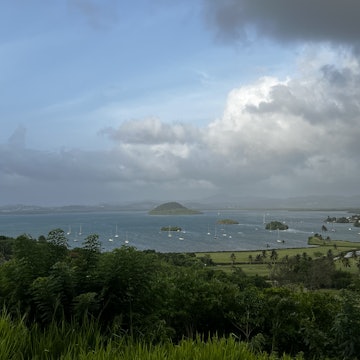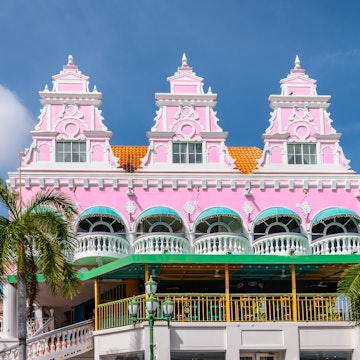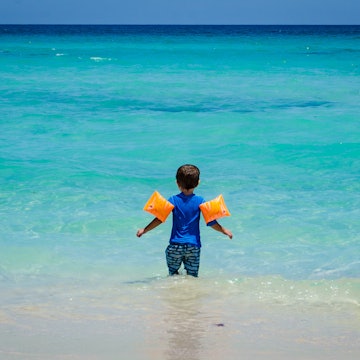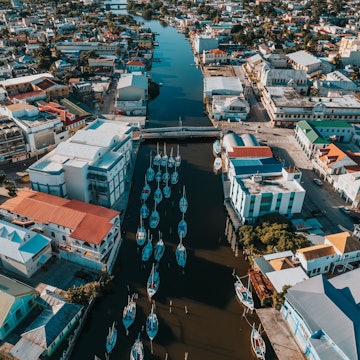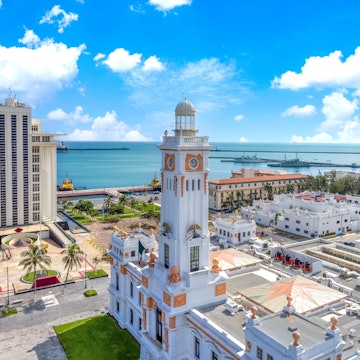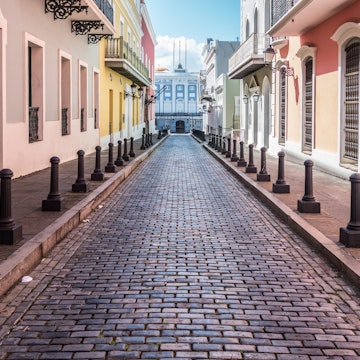
Why female Cuban professionals are leaving their careers to become artists

Jun 16, 2020 • 5 min read

Mary, the mother-in-law of Ciclo's founder, making event programs from recycled paper © Cassandra Brooklyn / Lonely Planet
From hand-crafted soaps and homemade recycled paper products to stained glass jewelry and Afro-Cuban clothing, artistas Cubanas are redefining art in Cuba’s capital city.
There’s no denying that Havana is a great city for art. The largest island in the Caribbean is home to both Latin America’s oldest arts academy and to the extraordinary Museo Nacional de Bellas Artes, arguably the finest art gallery in the region. In 2014, the Fábrica de Arte Cubano (FAC) opened, bringing to Havana a huge and unpretentious gallery and live-music venue that wouldn’t look out of place in New York City or Los Angeles. Havana continues to churn out some of the most inventive and ingenious artists in the world, and many of them happen to be women who have left their professional careers behind to become artist-entrepreneurs.

Women turn to careers in the arts
Cuba has one of the most educated populations in the world but with state salaries hovering around $25/month, private sector jobs are becoming increasingly appealing. Given the country’s rich artistic history, it’s no surprise that so many women are turning to careers in the arts. Many trained as economists, historians, or lawyers but are having more financial success in their new artistic careers. Some have even expanded their services to offer workshops to travelers who want to take home a screen print or piece of jewelry that they made themselves.
Though these new entrepreneurs come from different backgrounds and dedicate themselves to very different styles of art, what unites them is their passion to create sustainable art in a very challenging environment. Everyday items like shampoo and dish soap can be difficult to find in Cuba so securing art supplies can be near impossible. Sourcing obstacles, paired with a desire to create ecologically sustainable businesses, means these women are forced to be very creative when seeking materials.
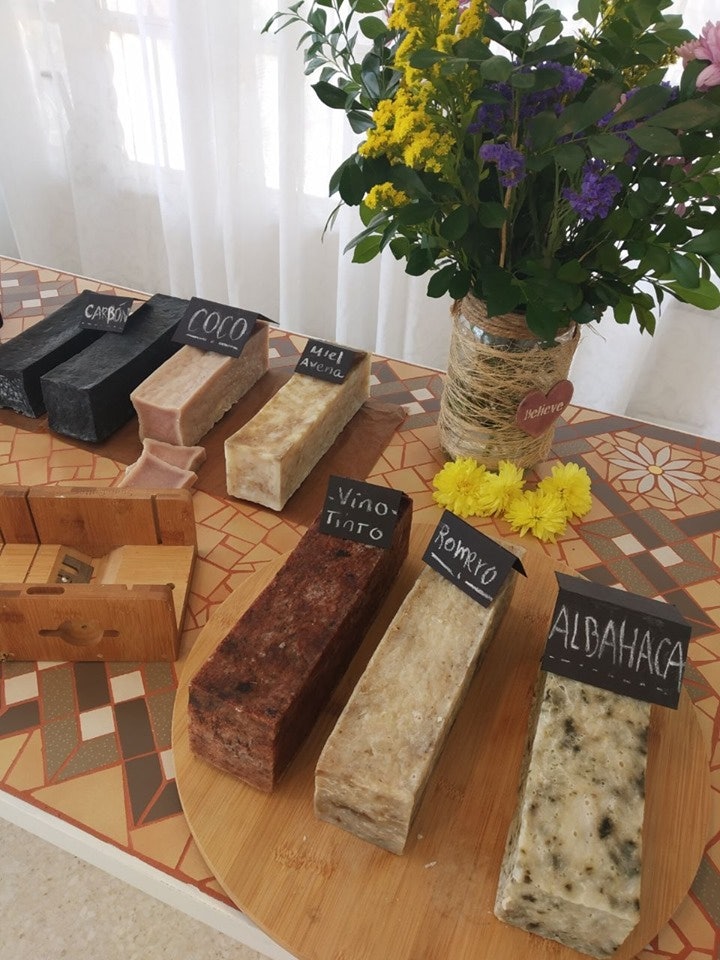
Artisanal soap
D’Brujas Jabones Artesanales is a collective of female artisanal soap makers started by Sandra Lidice Aldama in 2013. Trained as a special education teacher, Ms Aldama now oversees a team of seven women, including lawyers, industrial engineers, and a range of medical professionals. After a few location changes, the shop has now grown into an airy main location in the tourist-friendly Vedado neighborhood, with a secondary outpost within the popular souvenir extravaganza Almacenes San Jose.
The coconut oil, oatmeal, chocolate, and coffee used in the soaps are sourced locally, though essential oils must be imported. As international shipping isn’t a thing in Cuba, Aldama’s family members in Los Angeles, California mail the oils to other family members in Miami, who then send them with anybody they know that may be traveling to Cuba. D’Brujas hopes local fragrances will be available in the future and, in line with its goal of producing zero waste, it began selling bulk, package-less soap by the pound earlier this year. After initially launching a direct-to-consumer business, selling handmade soaps directly to both tourists and Cubans, D’Brujas now sells its soaps to 35 casas particulares (private homestays) that want to differentiate themselves from rentals using state-produced soap.

Since COVID-19 shut down the island and all non-essential stores, D’Brujas’ brick-and-mortar storefront remains closed, though employees continue selling the substantial stockpile from their homes. As a good chunk of its customers have always been Cuban, it continues to take orders despite the disappearance of tourists. Customers place orders via WhatsApp, and D’Brjuas staff deliver the soap by motorbike.
Recycled paper products
Without a culture – or the infrastructure to support – recycling on the island, Cubans are accustomed to giving products multiple lives, but most paper products eventually end up in the trash. Enter Ciclo Ecopapel (Cycle Eco Paper), a female-led collective in Old Havana that is creating recycled paper products using paper donated by entities as varied as universities, foreign embassies, and even Havana Club Rum. Yunairy Estrada Carpio left her career as an accountant because she believed running her own business would allow her to spend more time with her daughter, who is now nine years old and helps give tours of the workshop.
In addition to creating the stationery, artwork, bookmarks, and greeting cards found in the store, Ciclo produces agendas and program materials for events put on by the University of Havana, the New Latin American Film Festival, and for Oxfam, which also donates recycled paper to the shop. Instead of using lab-produced chemicals, Carpio and her team blend rainwater with natural binders like rice and wheat flour. Alongside their own house-made paper products, Ciclo serves as an eco-friendly brick-and-mortar marketplace by offering bags, clothing, and jewelry made by other socially responsible and sustainable designers based in Havana. Carpio, like other Cuban entrepreneurs, believes that cross-promotion helps all parties involved: artists, consumers, and the planet.

After COVID-19 hit the island, the members of Ciclo joined other entrepreneurs to collect 1.5-liter plastic bottles that could be turned into masks for healthcare workers. Ciclo continues taking paper product orders through WhatsApp and delivering throughout the city. With its entire customer base stuck in their homes, Ciclo has become increasingly active on social media, sharing tips for how to use less energy at home and leading discussions on Telegram about how to convert old wooden boxes into light fixtures.
Stained glass
Given that stained glass is neither produced in nor able to be imported to Cuba, it’s pretty astounding how well Cuba’s new and only stained-glass company, Vitria, is doing. Set up by Irena Martínez and Adriana de la Nuez, two native Habaneras in their late twenties, Vitria’s Old Havana shop started repairing the iconic stained glass windows that decorate homes, offices, and restaurants around the city. The company now sells jewelry and artwork made from recycled stained glass to the public and recently began hosting workshops for tourists who want to create their own stained-glass necklace or broach. As Havana’s artists are strongly committed to supporting each other, Vitria also sells jewelry and artwork that’s made by other local designers.
After the COVID-19 outbreak shut down Havana, Vitria’s storefront closed. The members have produced a few special orders from their homes but have largely been without work, waiting for shelter-in-place orders to be lifted.
You might also like:
Virtual Vacation: Cuba
Cuba's classic cars: your ticket to ride
Taste the tropics with these make-at-home Caribbean cocktails
Cassandra Brooklyn lives in New York City and leads tours in Cuba that visit the artists featured in this piece. You can find more about her and her tours at www.EscapingNY.com.





